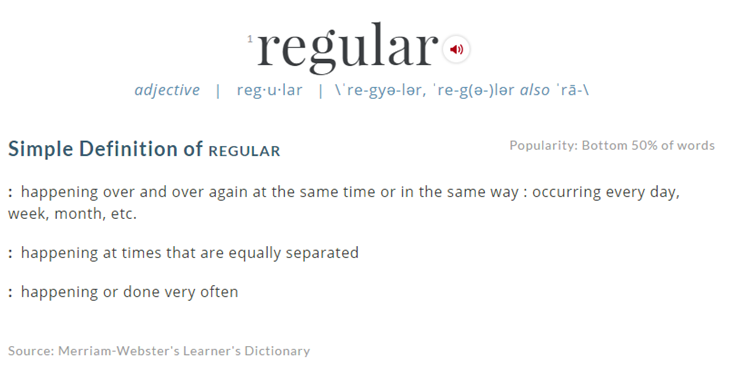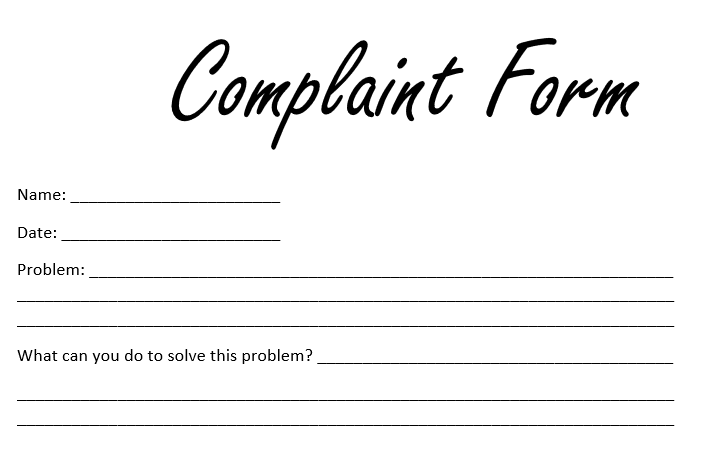A Blast from WCET Frontiers' Past - The Top Blogs of 2019
Published by: WCET | 12/23/2019
Tags: WCET
Published by: WCET | 12/23/2019
Tags: WCET
Today we’re looking back over 2019 and our most popular blog posts at WCET Frontiers. 2019 has been a busy year, especially for federal regulations, negotiated rulemaking, and state authorization. This year we clocked in with 126,034 words in 74 posts! Thank you for reading our posts and a special thank you to all of our wonderful guest authors.
Our top post was originally posted in 2016 and continues to land on our annual “top posts” lists, most likely because of ongoing uncertainties around regarding regular and substantive interaction. In this post, Russ Poulin (WCET’s Executive Director) and Van Davis (our Policy and Planning Consultant) discussed expectations of the Department of Education for accrediting agencies, institutions, and faculty to comply with definitions of regular and substantive interaction.
This post from Cheryl Dowd, the Director of the State Authorization Network (SAN), and Russ Poulin provided background on the 2016 State Authorization Federal Regulations, the U.S. District Court’s ruling regarding the delayed implementation of said regulations, guidance from the Department of Education on the topic, plus suggested actions for institutions. They recommended to follow state authorization requirements, especially if institution’s have out of state students enrolled online, to engage campus leadership in discussions about these regulations, and, most importantly, to keep students in mind.
These posts all made the top 10 list this year, and considering the similar topics, I decided to combine them into one list item. The release of new federal regulations on accreditation and state authorization was a hot topic this year. These posts introduced the (at the time) proposed regulations and called for comments during the open public comment period on the proposals. Then, once published, the last post explored the final regulations for state authorization that were released.
While alterative credentials remain a hot topic today, this post is from last year (but was published after our 2018 top ten list so we didn’t want to miss it)! David Porter, CEO of eCampusOntario, discussed his conversations with several education experts on badging and micro-credentials. He observed that learners and employers may benefit from micro-credentials as they will better prepare students for the workplace and are an effective strategy for students to showcase their skills. He also highlighted advice that higher education institutions could employ the use of badges and credentials in order to “increase the employability of their students.”
These two posts focused on the 2019 Negotiated Rulemaking process where representatives from various agencies and organizations negotiate terms of proposed regulations. There were a wide-range of rule changes proposed this year. In the first post, Russ and Cheryl discussed the issues and called for comments from our readers. In the second post, Russ and Cheryl discussed the negotiated rulemaking process for state authorization issues and a timeline for the proposed regulation release.
 In this post, Van Davis discussed the July 2019 announcement from the Department of Education regarding the implementation of amendments to the 2016 Distance Education regulations, specifically the impact on California students enrolled in distance education programs. Van included the 10 year journey these amendments took to be negotiated, delayed, proposed, commented on, delayed some more, ordered enforced, and finally implemented.
In this post, Van Davis discussed the July 2019 announcement from the Department of Education regarding the implementation of amendments to the 2016 Distance Education regulations, specifically the impact on California students enrolled in distance education programs. Van included the 10 year journey these amendments took to be negotiated, delayed, proposed, commented on, delayed some more, ordered enforced, and finally implemented.
This is also our highest read blog post, with 15,000 + views! Russ wrote this post in 2012 detailing the story of St. Mary-of-the-Woods College, who was ordered to refund financial aid money disbursed to students because it was classified as providing correspondence courses rather than distance education courses. Institutions are not eligible to participate in Title IV programs if 50% of its students are enrolled in correspondence courses. Russ discussed the reasons courses may be classified as correspondence courses rather than distance education courses. As an aside, this October, seven years after the original investigation, the Department of Education cleared St. Mary-of-the-Woods College and ruled that its courses were, in fact, distance education and not correspondence courses.
 I am thrilled to include this post in our top blogs of the year! I really enjoy creating our summer reading list each year. Our staff and steering committee members each submit their recommended reads. We always get a nice mix of professional development, educational, and fun book suggestions. This year’s post inspired a recommended podcast list as well (for which we received well over 100 great listening ideas!).
I am thrilled to include this post in our top blogs of the year! I really enjoy creating our summer reading list each year. Our staff and steering committee members each submit their recommended reads. We always get a nice mix of professional development, educational, and fun book suggestions. This year’s post inspired a recommended podcast list as well (for which we received well over 100 great listening ideas!).
What should we know about the so-called Generation Z? This post from Vickie Cook, Executive Director of the Center for Online Learning, Research, and Service at the University of Illinois Springfield, explored the definition of Generation Z, strengths of the generation, and ideas of engaging these students in the classroom.
This post, directly on theme for our 2019 WCET Leadership Summit, was an interview with Wiley Education Services Co-Presidents Matt Hillman and Todd Zipper on the changing workplace. They particularly focused on new opportunities for learning institutions and organizations to help bridge the skills gap, saying that “Anywhere there is a mismatch between the skills employers need and how students and employees are trained, we need to bridge that gap.” ~ Matt Hillman.
… and a bonus #11
We had a related post expanding on this topic and this year, in November, we were thrilled to announce that the VA had addressed this issue for hybrid courses. This post introduced the worrying topic of the Basic Housing Allowance for military veterans taking courses online. Veterans of the U.S. armed services are eligible for funding to pay for tuition, fees, books and supplies, and a Basic Allowance for Housing (BAH) while pursuing postsecondary education. However, if the veteran takes of his or her courses at a distance, the BAH is greatly reduced.

We discussed this issue with several veterans and how it impacted their daily lives.
Here’s a toast to 2019 (and to the entire decade) as we head into 2020. WCET Frontiers is excited to continue to bring you content on promising practices in technology-enhanced higher education and on important higher education policy updates. Have story ideas? Let us know here in the comments, via email at wcetinfo@wiche.edu, or via Twitter at @wcet_info.
Thank you for a wonderful year! See you in 2020!

Lindsey Downs
Assistant Director, Communications, Community, and Social Media, WCET
Catch me on Twitter: @lindsey0427
Stay Connected to WCET on Twitter: @wcet_info

